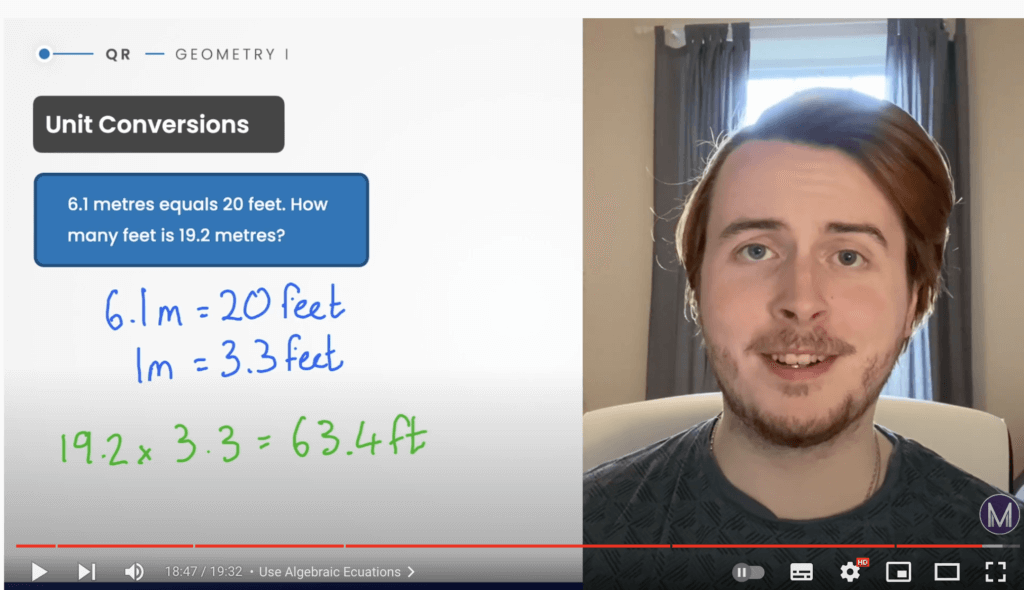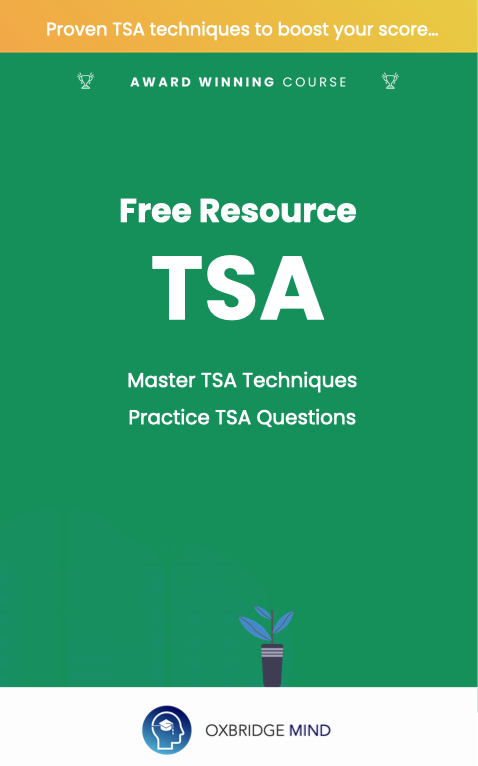It’s important to prepare for the TSA to get the best result you can. There’s no specific TSA score needed for interview, but you’ll have the best chance if you score highly, and to achieve that, you’ll need to be prepared – our TSA Preparation Tips might help.
What TSA score do I need?
There’s no specific Oxford TSA score needed for interview. The test is designed so the average test taker scores around 60, 70 is a comparatively high score and a few exceptional candidates will score 80+. So, aim to do as well as you possibly can. Wondering how to improve your TSA score? TSA preparation is key, so check out these top tips for being prepared to sit the TSA.
9 TSA Preparation Tips
1. Use the TSA past papers
Oxbridge Mind have compiled many TSA Past Papers.
It’s great practice to do them to time, mark them, and then have another go at the questions you got wrong.
2. Learn the question types in TSA Section 1
There are different types of question in TSA Section 1, and being able to spot them will help you get better at recognising what the question is asking you to do. Check out our 10 Tips for TSA Section 1 article to learn more about these!
3. Keep up with current affairs
Keeping up with the news can help in several ways. First, you can use the articles you read as Critical Thinking practice by trying to identify the different parts of the structure of the arguments. Section 2 questions tend to be topical, so keeping up with significant global news and current issues that are being debated in the media will help with these.
4. Do practice essays
If you have to sit Section 2, you’ll want to do as many practice essays as you can, to get used to the experience of writing an entire essay in just half an hour. You should practice in the format you’ll be sitting the test, so as the test is handwritten you should handwrite your practice essays.
5. Use the specimen test with explained answers
At the link in the first tip, alongside the past papers there is a Section 1 specimen paper with explained answers. Do the specimen paper, and use the explained answers to guide you where you went wrong. It’s the best insight you’ll get into the rationale behind the questions and the kind of thought processes that you’ll be expected to follow.
6. Use BMAT Section 1 past papers
There’s a finite number of TSA past papers, so if you want more practice the BMAT Section 1 past papers are great! The question styles are exactly the same – the only difference is that the BMAT Section 1 is shorter than the TSA.
7. Brush up on your Maths skills
You don’t get a calculator in the TSA, so you’ll be expected to do mental maths. The maths required is quite simple (a guide to exactly what is required can be found in this document TSA Questions Guide) but you might be out of practice with doing this maths without a calculator. Make sure you can confidently, quickly and accurately do the required maths in your head.
8. Don’t neglect the rest of your application
TSA is important, but so are your personal statement, UCAS application and A-level grades. Don’t let TSA preparation get in the way of these. There’s no point preparing for the TSA so extensively that your personal statement or predicted grades aren’t up to scratch and cause you to get rejected. There is no TSA score that will guarantee you an interview if the rest of your application isn’t up to scratch. It’s important to find a balance during this busy time!
9. Start preparing in plenty of time
A month or two before the exam is a good window to begin serious preparation. Of course, if you’ve left it a bit more last minute, don’t panic! Some preparation is always better than none. You just might need to prepare more intensively. However, the TSA can’t be prepared for with an all-night cramming session the night before, as it is a skills based test, so don’t assume you’ll be fine leaving things to the last possible minute.
If you’re looking for tips for Section 1 or 2 specifically, or tips for exam day itself, check out our other TSA articles. Our expert tutors can also help you prepare for TSA. Our TSA Online Course and 1-1 tutoring sessions are tailored to your needs and can help you achieve your best possible score!



